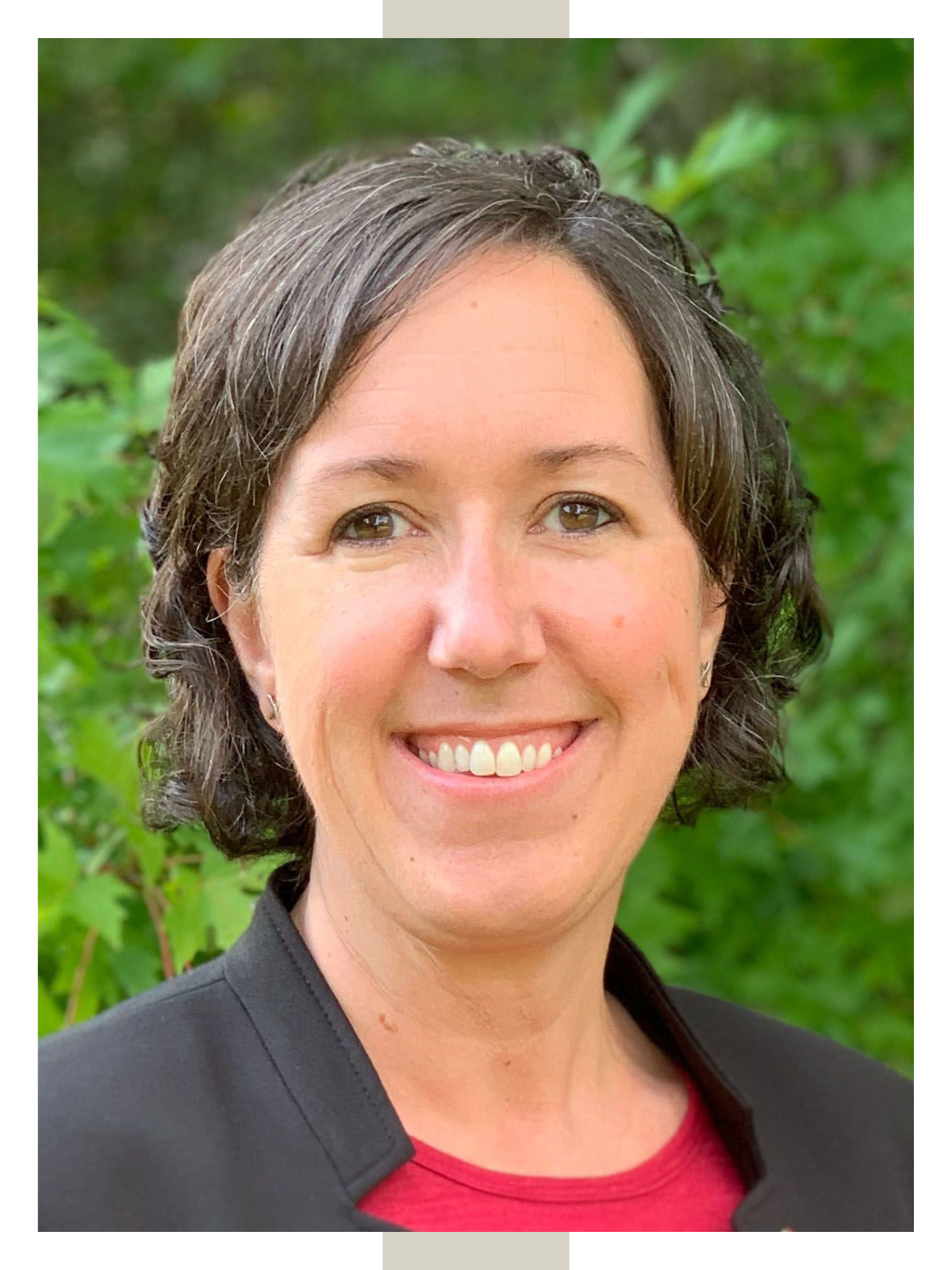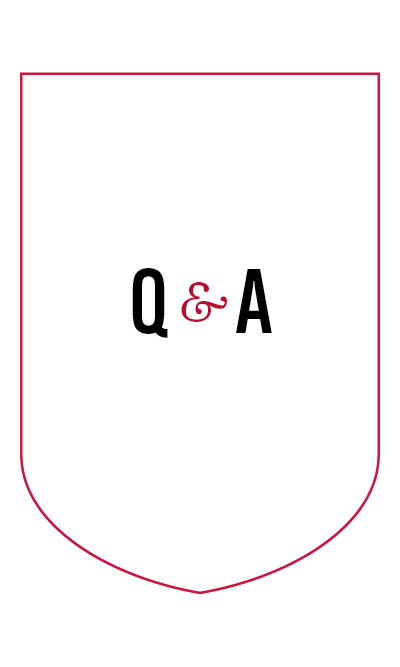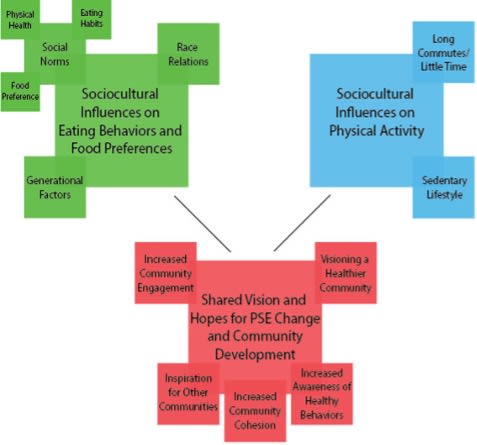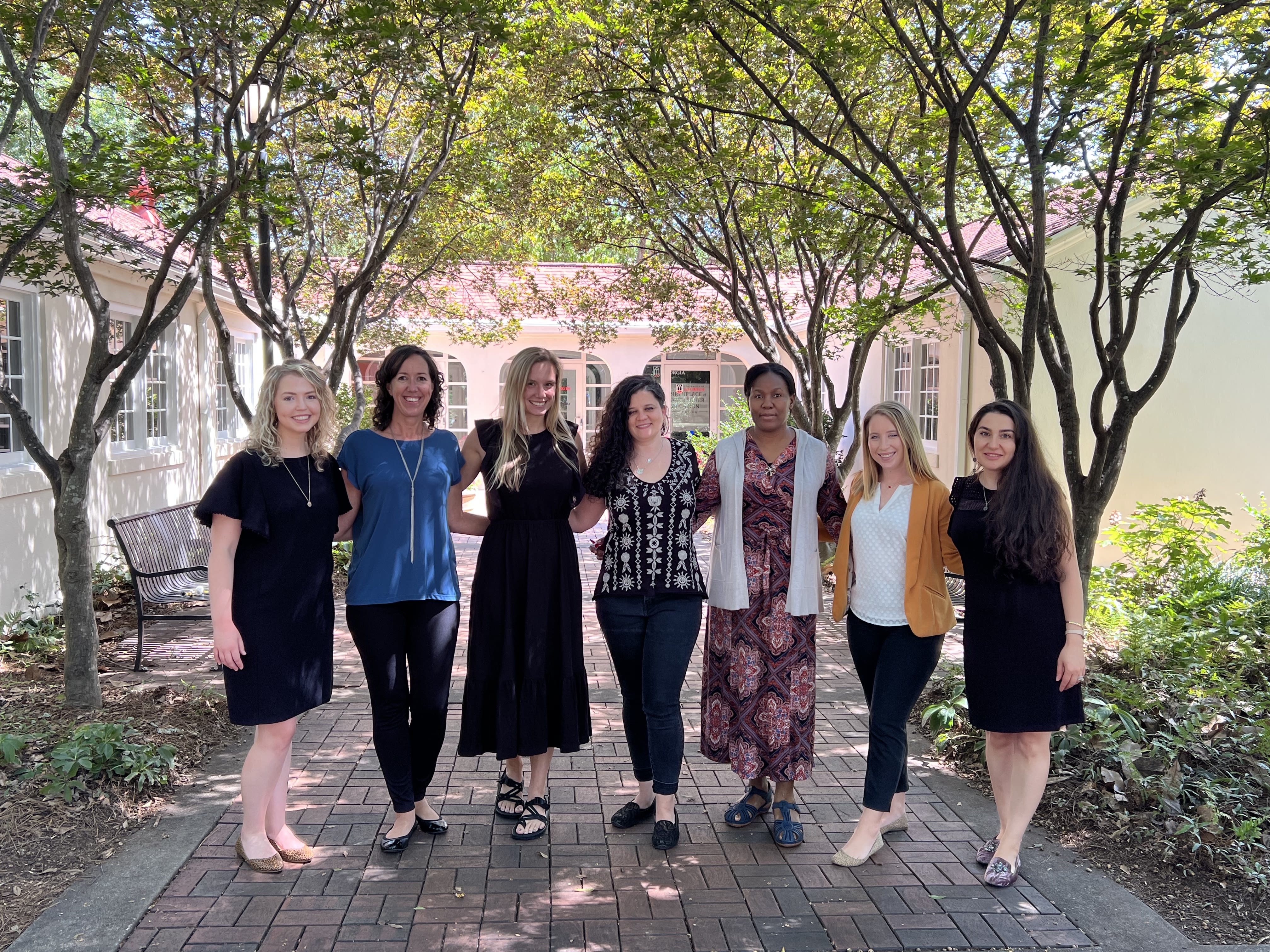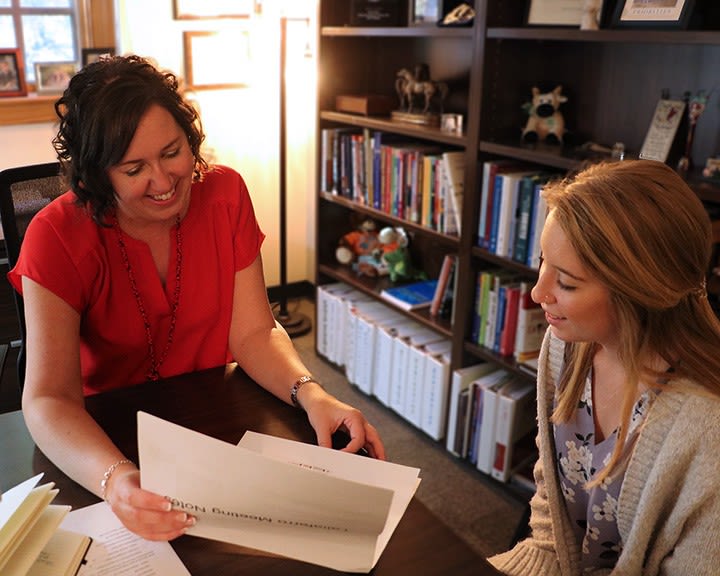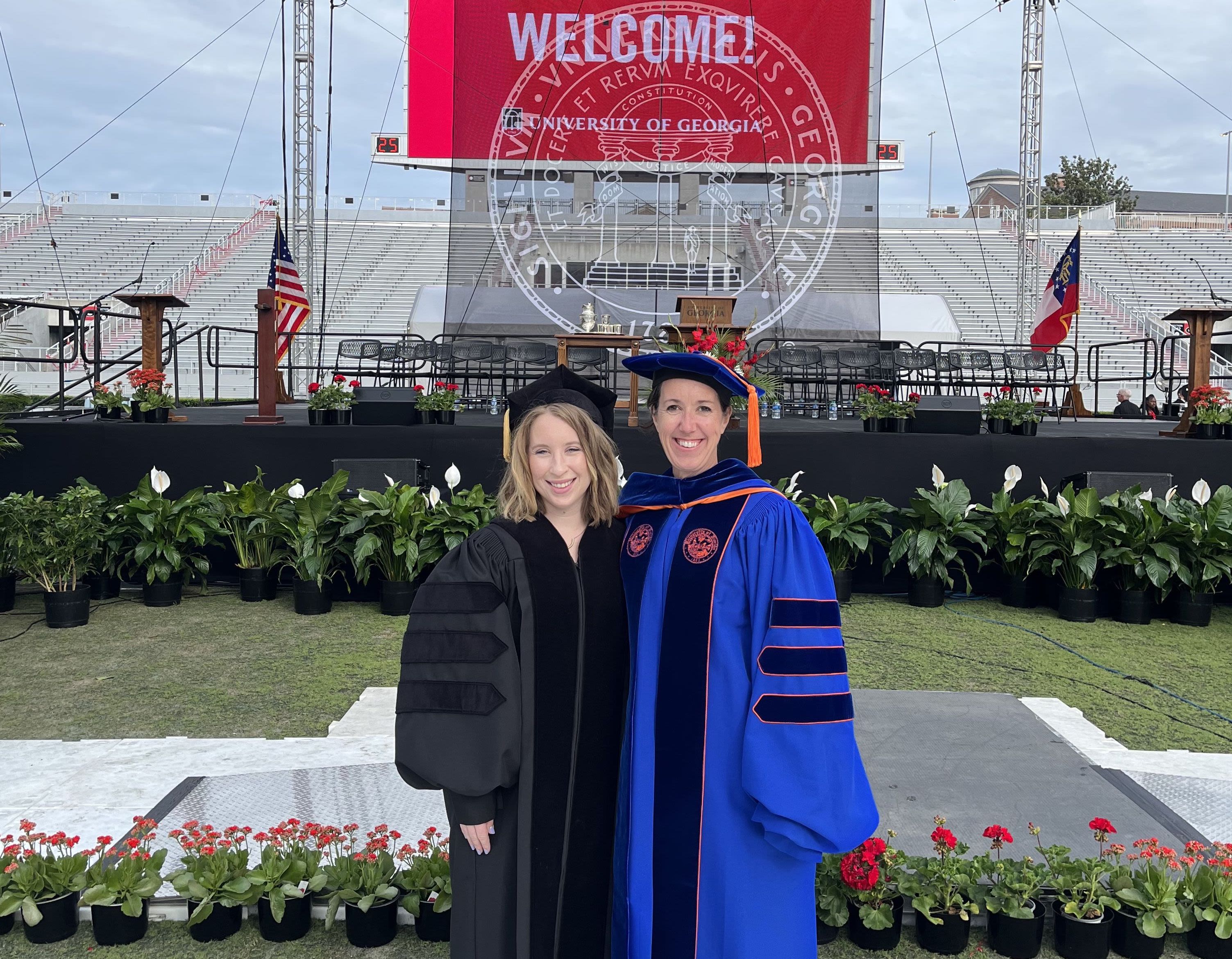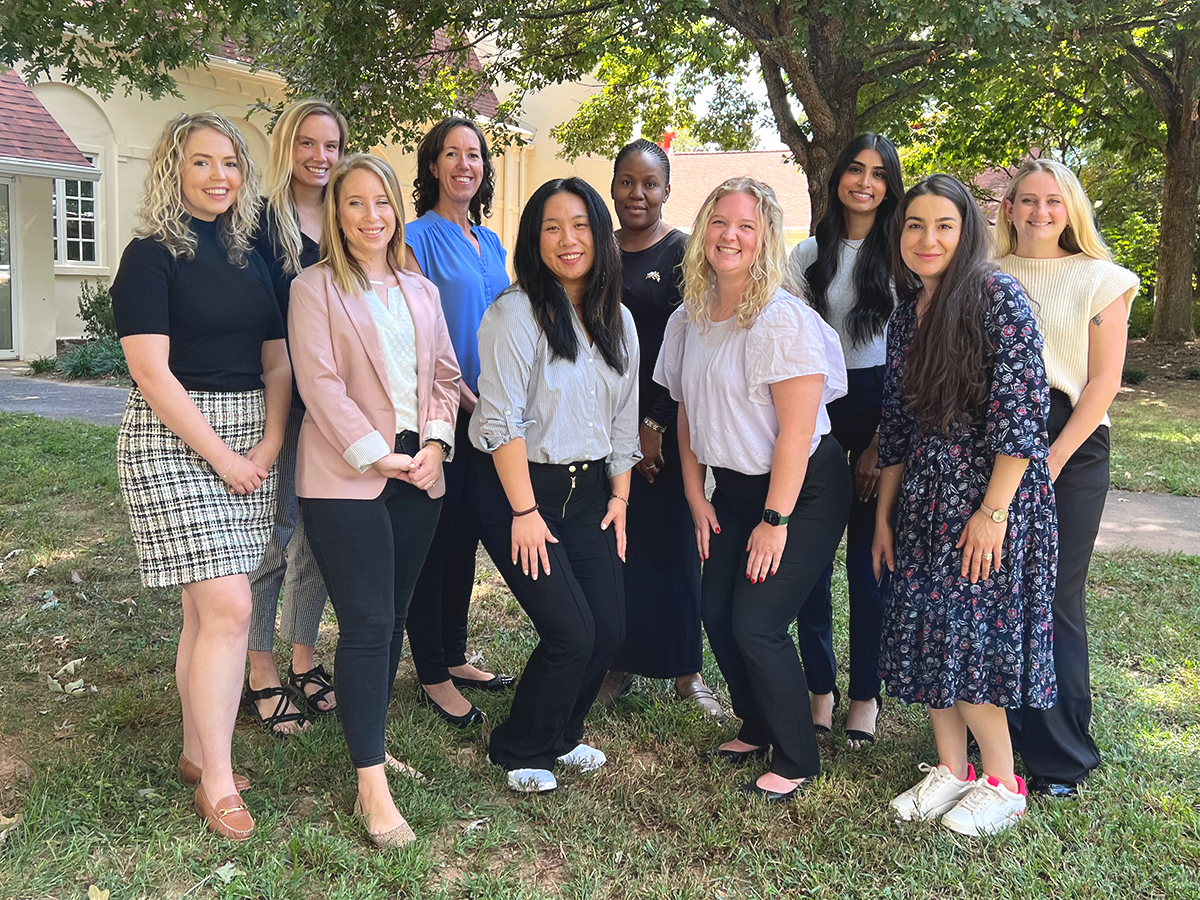Alexa Lamm
A 2023 Fellow of the American Association of Agricultural Education, Professor Lamm's research focuses on how communication efforts impact the adoption of new agricultural technologies.
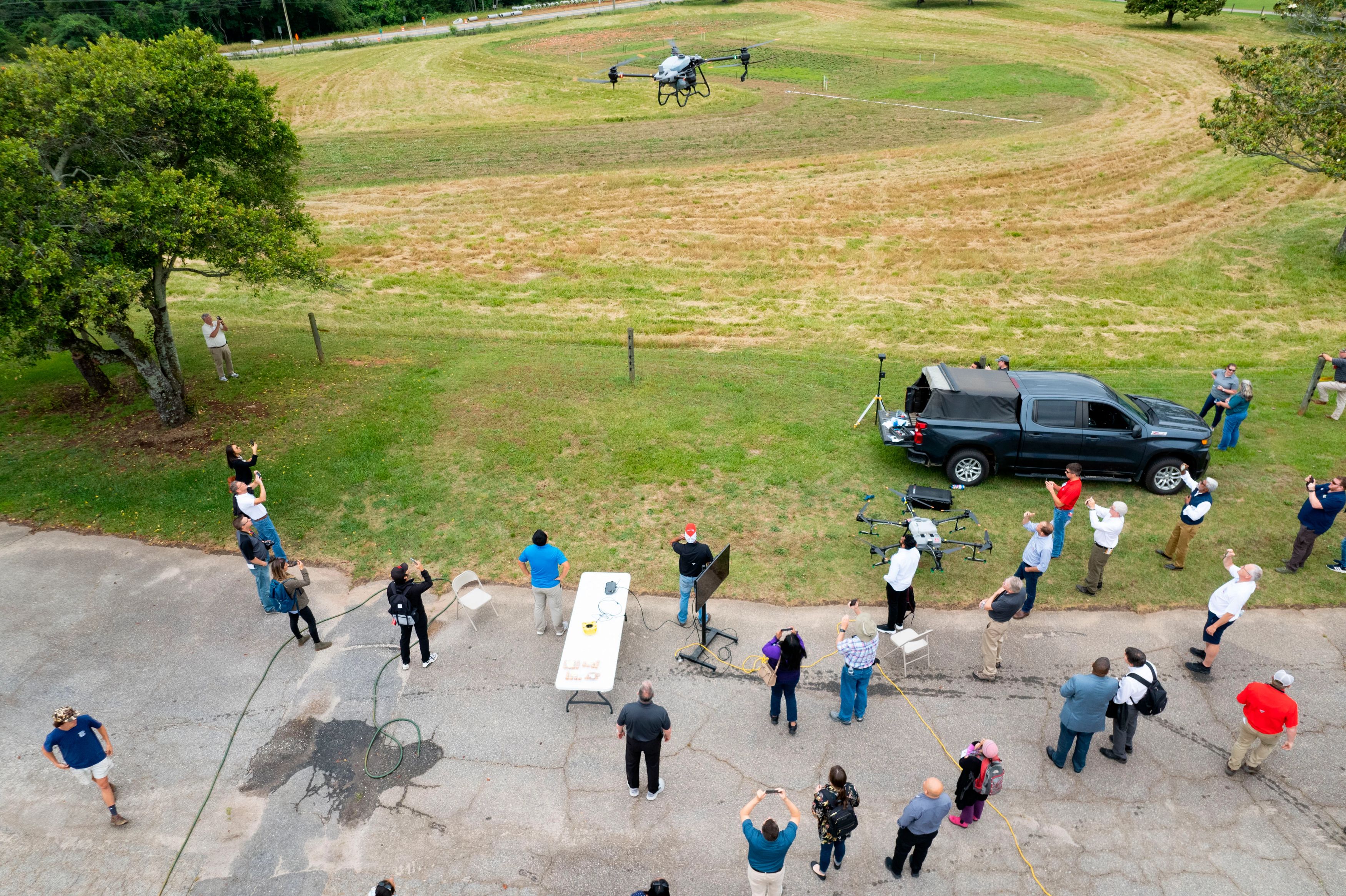
What can you tell us about your career path — what got you to your current position?
My path was not a direct one but rather a series of fortunate events that brought me to the University of Georgia. I always wanted to be a veterinarian growing up, and I pursued a bachelor’s degree in animal science at Colorado State University.
During this time, I worked as a work-study student in the state Cooperative Extension administration office. I discovered that I really enjoyed working with healthy animals more than sick ones, and through my connections in the Extension office, I found my way to a master’s degree in Extension education.
My goal was to become an Agriculture and Natural Resources and 4-H agent, which is what I did upon graduation. I always wanted to pursue a doctoral degree but loved being an Extension agent. It was a dream job, but I could not believe how difficult it was to share the impact of Extension. So I sought to learn about evaluating and communicating impact.
I quickly found I had to obtain more education if I was going to help Extension articulate its value and worth on a larger scale. My husband and I left Colorado and I pursued a doctorate at the University of Florida with the intent of becoming an Extension evaluation specialist. While there, I found a passion for evaluating programs and communicating the value of Extension to the public.
The Center for Public Issues Education in Agriculture and Natural Resources (known as the UF/IFAS PIE Center) was in its infancy at the time, and I was inspired to help launch the initiative. I was hired as the first tenure-track faculty member and became the associate director. Over the next seven years, I led the PIE Center as director twice and enjoyed watching it grow and become what it is today.
What brought you to CAES?
I always desired to help Extension tell its story. When Laura Perry Johnson shared her vision for the new UGA Cooperative Extension evaluation specialist position with me, I had to apply. It was an amazing opportunity to develop a tool to aggregate the public value of Extension and start sharing that message broadly from one of the strongest Extension systems in the United States.
Little did I know at the time I would be able to create and test that instrument and then transition to building a doctoral program in the UGA Department of Agricultural Leadership, Education and Communication to further develop a future workforce prepared to take on the agricultural and environmental challenges we face — with a focus on the human dimension.
Why did you choose your field?
I see Extension professionals as the original science communicators, so it is a field I chose a long time ago. Extension’s mission is to translate and bring information from the land-grant university (scientific findings) to the people that need it most (producers, consumers and decision makers). While this one-way communication is important, science communication can be so much more.
At UGA, we have brilliant scientists making technological breakthroughs that help us feed an ever-growing global population while sustaining our natural environment. Their work is impressive but has little impact if producers do not adopt it, consumers do not accept it and/or decision makers regulate its use, making it ineffective.
I see my field as the catalyst for opening communication channels to allow for dialogue, sharing and co-creating new knowledge alongside the scientific community, stakeholders, the public, and decision makers to ensure agricultural and environmental scientific advancement can be as effective as possible.
What would you most like the public to know about your work?
I believe strongly in the power of public sentiment to assist in directing scientific advancement. I think the public should be involved and have a voice in informing science.
I believe it is with two-way communication that we can build trust between the scientific community and the public and find solutions to our largest global challenges — solutions we have not even thought of yet and can only create working together.
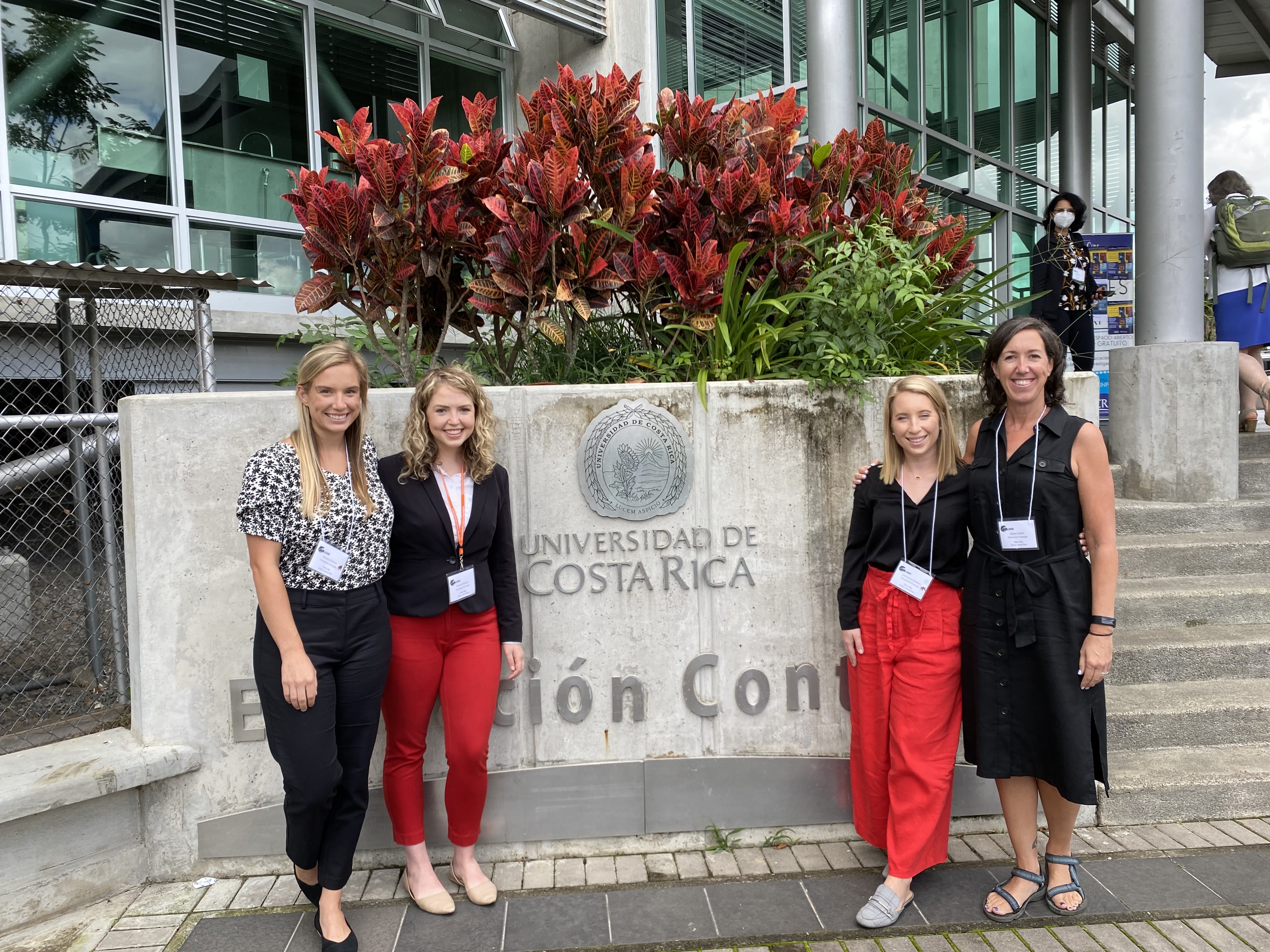
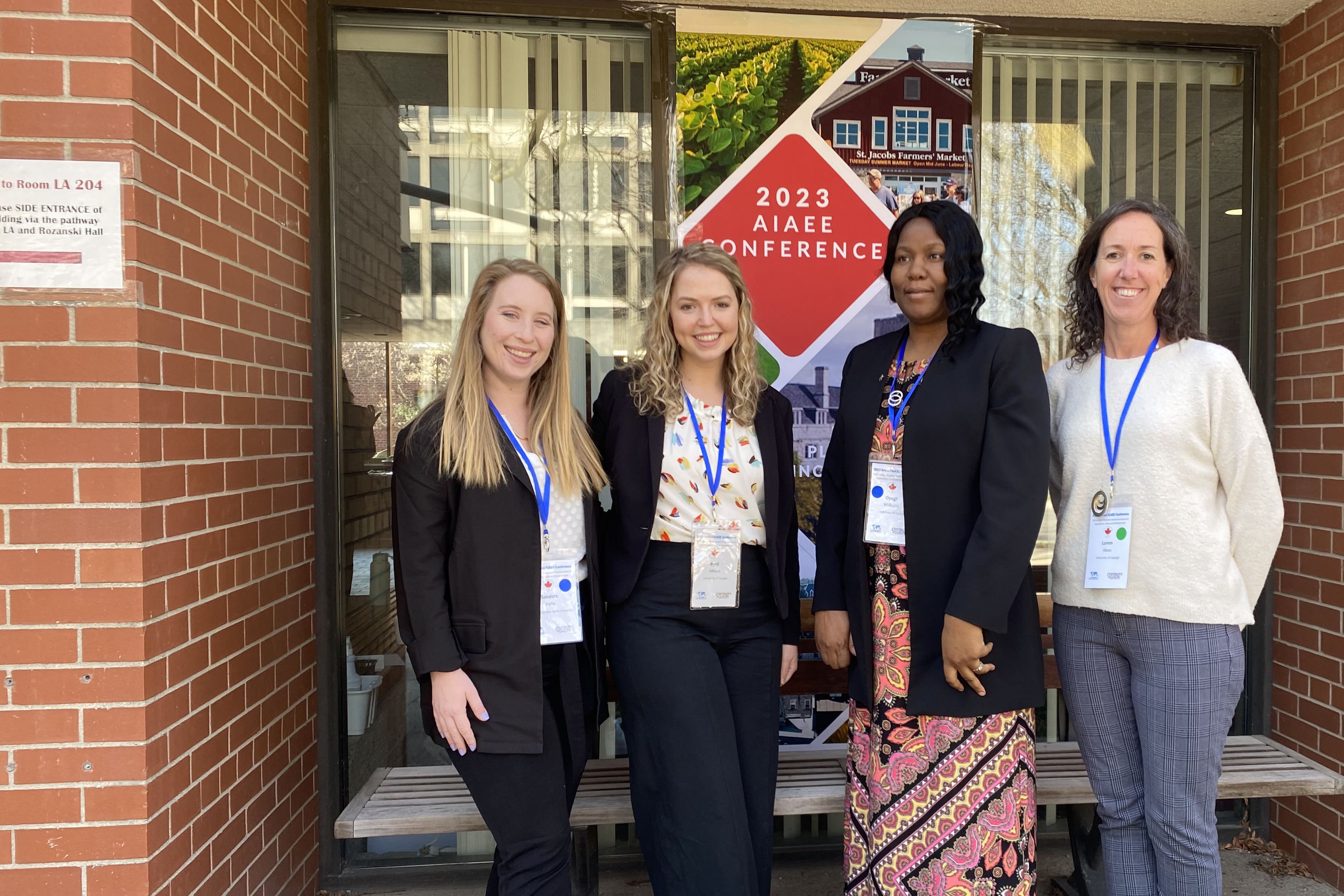
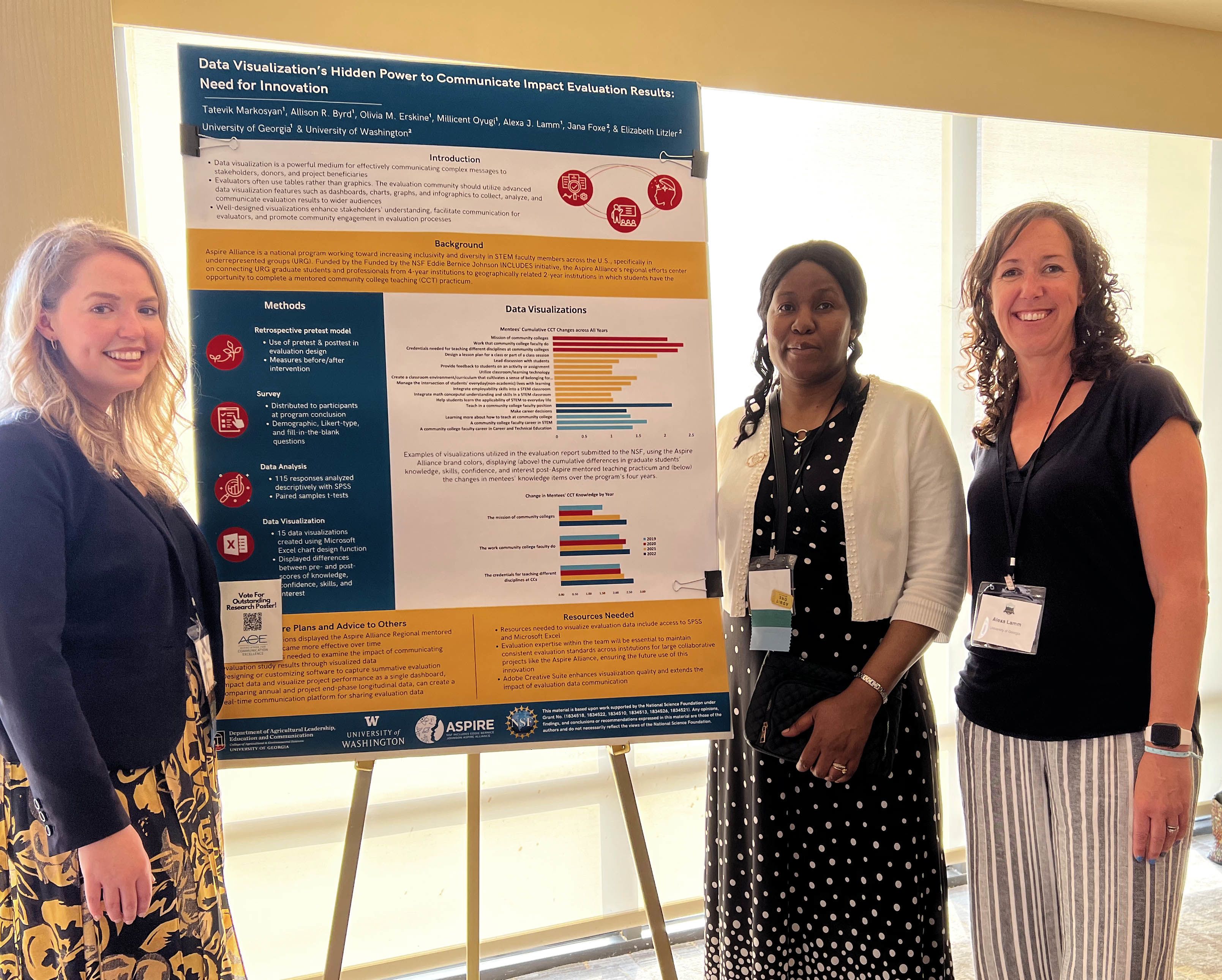
You just received Editor's Choice Article in the Journal of Nutrition Education and Behavior — can you tell us about the research behind it?
The article, titled “Qualitative Exploration of Cultural Influence on a Rural Health-Promotion Initiative” was authored by doctoral students Nekeisha Randall and Katie Sanders alongside Associate Professor Alison Berg and me. The research emerged from a need to help explain the influence of culture on rural residents’ perceptions of Extension initiatives focused on promoting food access and physical activity engagement.
The UGA Extension initiative we were studying is called Healthier Together. It is an amazing interdisciplinary project we have been working on the past four years, funded by the U.S. Centers for Disease Control. The project aims to increase policy, systems and environmental changes to support healthy lifestyle behaviors in the rural Georgia counties most at risk for diet-related chronic disease.
Healthier Together uses volunteer community coalitions, or community groups, to help guide project implementation in each county. For this research, we conducted focus groups with 39 members of the five community coalitions in each county involved in Healthier Together.
After seven hours of discussion and a rigorous qualitative data analysis process, we found that social norms, race relations, generational factors and hopes for the community’s future impacted coalition members’ perceptions of Healthier Together.
While policy, systems and environmental changes often focus on what needs to be changed in the physical environment (think new food distribution centers, walking trails, parks, etc.), we found that factors beyond the infrastructure of a community have a large impact on the success, accessibility and inclusivity of Extension health interventions. Ultimately, we proposed the framework illustrated below, which we hope will help increase the cultural responsiveness of health promotion projects in rural areas across the United States.
What are you currently working on, and what is the end goal of that work?
I am currently working on exploring the power of emotional reaction to science communication messages. The scientific community tends to use logic, numbers, acronyms and big words to explain science. However, people are now bombarded with so much information every day it is hard to get through the noise. In addition, most people make decisions based on their emotional reaction.
How many times have you followed your “gut” or heard someone else share this sentiment? I believe the scientific community needs to think about how scientific findings can be translated into different mediums to share information while also eliciting emotional responses people can feel to capture attention.
I hope to explore the impact of emotionally driven messaging strategies on acceptance of agricultural and environmental scientific innovations.
What is your proudest recent accomplishment?
My proudest recent accomplishment was hooding Katie Sanders at her graduation ceremony this May. She was one of our first doctoral graduates out of the brand-new ALEC doctoral degree program and is headed to North Carolina State University as an assistant professor of food systems communication.
I am very proud of her and what our faculty have accomplished over the past four years as we successfully put this new doctoral degree program in place.
What is your favorite part about what you do?
My favorite part of my job is working with graduate students. They inspire me each day and make coming to work a joy. The graduate students I work with never cease to amaze me with their work ethic — how they show up for themselves and others, the way they push me to think differently and how they push me to be a lifelong learner.
Their never-ceasing ability to examine things from a multitude of angles — and their persistence in making the world a better place despite the challenges we face — indicates our future is bright given the workforce emerging out of the UGA College of Agricultural and Environmental Sciences.
If you could do anything else, what would it be?
I would probably work in international agricultural development with a focus on Sub-Saharan Africa. I have been fortunate to have the opportunity to work in this part of the world assisting with policy formation focused on enhancing rural advisory services (Extension).
The women working in agriculture in this part of the world face challenges many of us cannot even imagine, yet they hold an immense amount of agricultural and environmental Indigenous knowledge and pride in what they are able to accomplish.
Lamm and the agricultural leadership, education and communication students in her lab pose outside of UGA's Four Towers building.
Lamm and the agricultural leadership, education and communication students in her lab pose outside of UGA's Four Towers building.
I believe these women have much to teach the rest of the world. I would love to help give voice to their stories in a way that it would be used to inform policy at the country, regional, continental and international level to advance agriculture globally while sustaining the natural environment.
What is something your colleagues or students might not know about you — hobbies, interests, secret talents?
I have always loved horses. Many know this about me but may not know that I am also a horse show judge. In fact, the 4-H Horse Judging team I coached as a 4-H agent in Douglas County, Colorado, won the National Horse Judging Championship.


